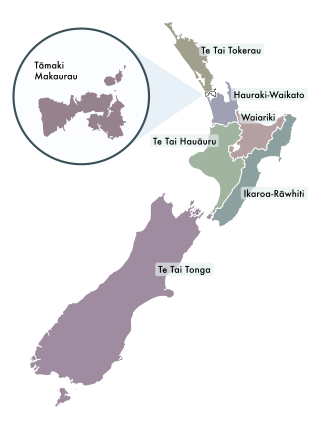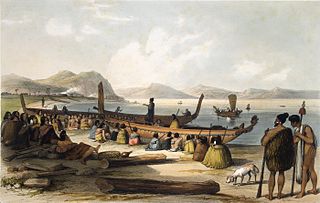99 MP Party | |
|---|---|
 | |
| Founded | 2005 |
| Dissolved | 2006 |
The 99 MP Party was a small New Zealand political party that contested the 2005 general election. It supported a reduction of the number of Members of Parliament from 120 to 99.
99 MP Party | |
|---|---|
 | |
| Founded | 2005 |
| Dissolved | 2006 |
The 99 MP Party was a small New Zealand political party that contested the 2005 general election. It supported a reduction of the number of Members of Parliament from 120 to 99.
With the introduction of Mixed Member Proportional in 1996, the number of MPs rose from 99 to 120. Margaret Robertson organised a referendum in 1999 calling for the number to be reduced back to 99.
Local businessman Jack Yan proposed that Robertson's campaign be turned into a political party in 2001, a decision that she agreed to the following year after finding that most parties in Parliament generally did not support a reduction. Robertson took initial steps toward achieving the membership number required. Yan initially served as president and designed the logo and marketing collateral, but lived in Europe in the northern summer of 2002, became less involved on his return, and was replaced.
The 2002 policies were centrist to conservative, including the toughening of the Crimes Act 1961 and reforming Parliament and the select committee structure. In addition to the reduction of MP numbers, the party also supports making referendums mandatory for all constitutional changes.
The Electoral Commission accepted the party's official registration on 14 April 2005. It put forward a party list of two people: Robertson and Ramasmy Ramanathan.
In the 2005 elections, the 99 MP Party received 601 party votes, or 0.03%, and did not win any electorate seats, so did not enter parliament. [1] Shortly afterwards, Margaret Robertson announced plans to step down.[ citation needed ]
In February 2006, New Zealand First MP Barbara Stewart introduced a private member's bill that would cut the number of MPs to 100. [2] It passed its first reading, though the Maori Party indicated their support was so that the bill could go to select committee, at which public submissions could be heard. [3] The select committee recommended against changing the number of MPs. [4] The bill was defeated at its second reading on 8 November 2006.[ citation needed ]
In September 2006, the party was deregistered, having failed to provide evidence of the necessary 500 members.[ citation needed ]As of 2023 [update] , the size of parliament remains at least 120.

The New Zealand Parliament is the unicameral legislature of New Zealand, consisting of the Sovereign (King-in-Parliament) and the New Zealand House of Representatives. The King is usually represented by his governor-general. Before 1951, there was an upper chamber, the New Zealand Legislative Council. The New Zealand Parliament was established in 1854 and is one of the oldest continuously functioning legislatures in the world. It has met in Wellington, the capital of New Zealand, since 1865.

The House of Representatives is the sole chamber of the New Zealand Parliament. The House passes laws, provides ministers to form Cabinet, and supervises the work of government. It is also responsible for adopting the state's budgets and approving the state's accounts.

The Smoke-free Environments Amendment Act 2003 is an Act of Parliament in New Zealand that prohibits smoking in all workplaces including offices, clubs, pubs, restaurants, airports, and schools.

In New Zealand politics, Māori electorates, colloquially known as the Māori seats, are a special category of electorate that give reserved positions to representatives of Māori in the New Zealand Parliament. Every area in New Zealand is covered by both a general and a Māori electorate; as of 2020, there are seven Māori electorates. Since 1967, candidates in Māori electorates have not needed to be Māori themselves, but to register as a voter in the Māori electorates people need to declare that they are of Māori descent.
The Kiwi Party was a political party operating in New Zealand between 2007 and 2011. Briefly known as Future New Zealand, it was a breakaway from the United Future New Zealand party and sought to carry on the tradition of Future New Zealand. The party was formed when MP Gordon Copeland left United Future after a dispute over support for the Crimes Amendment Act 2007. At the 2008 general election, the Kiwi Party was unsuccessful, and was not re-elected to Parliament. It did not contest the 2011 general election under its own banner, but the leaders and other members stood for the Conservative Party.
Barbara Joy Stewart is a former New Zealand politician. She was a Member of Parliament for the New Zealand First party from 2002 to 2008 and again from 2011 to 2017.

Charles Paul Telford Hutchison, known as Paul Hutchison is a New Zealand politician and former health professional. He is a member of the National Party, which he represented in the House of Representatives from 1999 to 2014.

Rainbow Labour is the LGBT+ sector of the New Zealand Labour Party.

In New Zealand politics, waka-jumping is a colloquial term for when a member of Parliament (MP) either switches political party between elections or when a list MP's party membership ceases.

Referendums are held only occasionally by the Government of New Zealand. Referendums may be government-initiated or held in accordance with the Electoral Act 1993 or the Citizens Initiated Referenda Act 1993. Nineteen referendums have been held so far. Fourteen were government-led, and five were indicative citizen initiatives.

Louisa Hareruia Wall is a former New Zealand Labour Party politician who served as a Member of Parliament (MP) from 2011 to 2022. She has represented New Zealand in both netball as a Silver Fern and rugby union as a member of the Black Ferns. In late March 2022, Wall announced that she would resign from Parliament.

Timothy Harley Macindoe is a New Zealand politician who was elected as a Member of Parliament in 2008 for the Hamilton West electorate. Macindoe previously served as the Minister of Customs in the Fifth National Government.
The 2011 New Zealand voting system referendum was a referendum on whether to keep the existing mixed member proportional (MMP) voting system, or to change to another voting system, for electing Members of Parliament to New Zealand's House of Representatives. It was held on 26 November 2011 in conjunction with the 2011 general election.

The 1999 New Zealand MP reduction referendum was held during the 1999 general election on 27 November 1999. The Referendum considered two questions, in which one brought upon the question on whether New Zealand Parliament should be restructured - reducing the number of MPs from 120 to 99 members in the House of Representatives.
Simon David O'Connor is a New Zealand politician and a former member of the New Zealand House of Representatives for the National Party. He represented the Tāmaki electorate from 2011 to 2023.

The Marriage Amendment Act 2013 is an Act of Parliament in New Zealand, which since 19 August 2013, allows same-sex couples to legally marry.
Jennifer Lyn Marcroft is a New Zealand politician and Member of Parliament in the House of Representatives for the New Zealand First party.

The Abortion Legislation Act 2020 is an Act of Parliament in New Zealand allowing unrestricted access to abortion within the first 20 weeks of pregnancy, and repealing sections of the Crimes Act 1961 related to unlawful abortion. After the 20-week period, women seeking an abortion must consult a qualified health practitioner who will assess their physical health, mental health, and well-being. The Act also provides provisions for conscientious objection rights for medical practitioners and exempts abortion services from certain Crimes Act provisions, while extending the definition of health services to include abortion services under the Health and Disability Commissioner Act 1994.

The 53rd New Zealand Parliament was a meeting of the legislature in New Zealand. It opened on 25 November 2020 following the 17 October 2020 general election, and dissolved on 8 September 2023 to trigger the next election. It consisted of 120 members of Parliament (MPs) with five parties represented: the Labour and Green parties, in government, and the National, Māori and ACT parties, in opposition. The Sixth Labour Government held a majority in this Parliament. Jacinda Ardern continued as prime minister until her resignation on 25 January 2023; she was succeeded by Chris Hipkins.
Brooke Olivia van Velden is a New Zealand politician who has been a Member of Parliament since the 2020 general election for ACT New Zealand. She has been the party's deputy leader since June 2020.